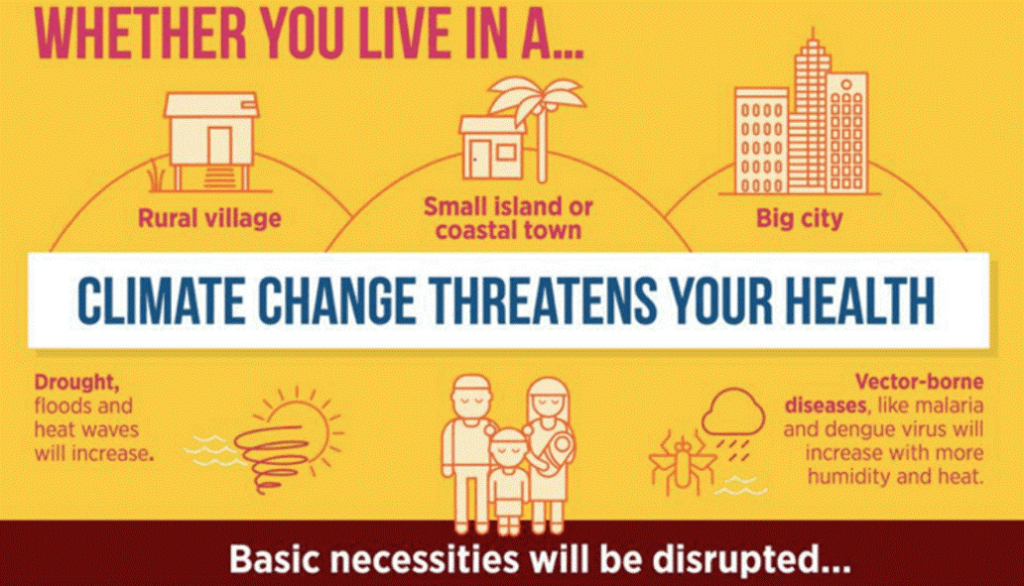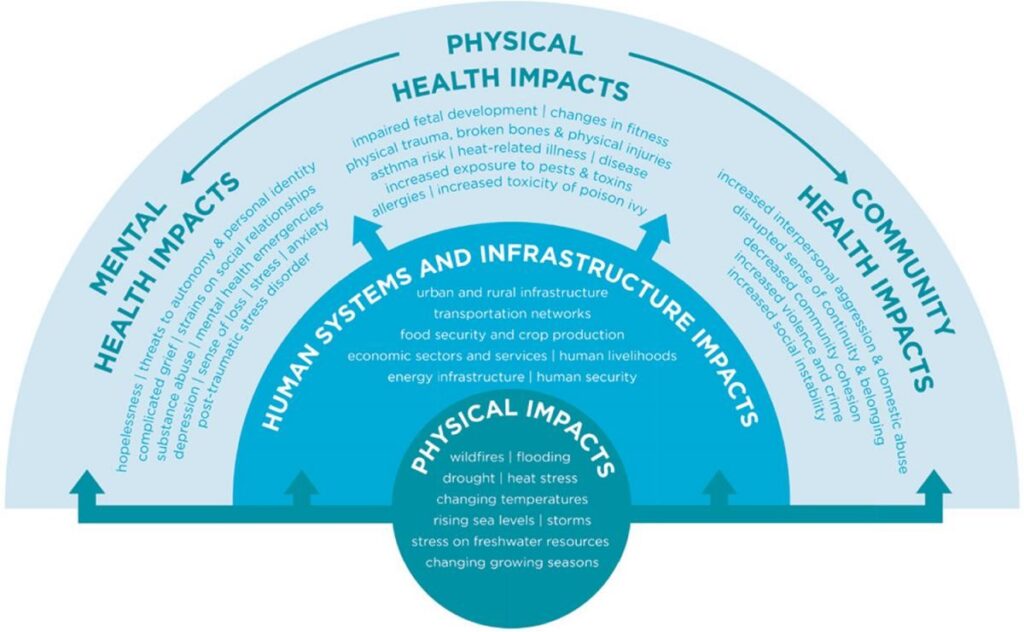To the people sitting in the comfort of their homes, climate change would be another one of the problems that the world is facing on the sideline. However, to your surprise, it is not only affecting the earth and environment in general. Still, it is also causing much of a trouble to human beings in terms of physical wellbeing as well as mental health. Although, for years, various magazines and newspapers have been trying to bring attention to the fact that rising temperatures and sea levels along with melting snow and ice are disrupting people’s lives as well as the area they live in. But the topic has been trending most in today’s time, where activists like Greta Thunberg are raising climate change awareness in the general public.
“We can’t save the world by playing by the rules, because the rules have to be changed. Everything needs to change – and it has to start today.” TEDx Stockholm, December 2018.
Impact on Wellbeing
Together with natural and human-made health stressors, climate change is affecting the environment that provides us with food, water, clean air, and shelter that is consequently threatening the general wellbeing of people. On the one hand, the frequent changes in climate can directly affect a person through deadly storms or floods. They can also influence the person indirectly, meaning through disease vectors like mosquitos or waterborne pathogens. However, you should note here that not every area of the globe is affected the same way by its changing weather. To say, the areas that have well-managed systems and proper governance are at limited risk. The reason is that the authorities in such well-developed areas provide the people with health safeguards causing their adaptive capacity, to extreme weather, to rise.

Psychological Effect
By affecting the environment of people’s locations, climate change is also subsequently affecting the mental health of those people as people facing natural disasters are prone to developing mental health complications like anxiety and depression. And those who are (genetically/environmentally) predisposed to such complications are at a much higher risk of developing chronic psychological dysfunction.
Nevertheless, the future only holds more lousy news if nothing is done to stop climate change right away. According to research, in the next 65 years, more than “5.5 million people” can be expected to be affected by floods and storms (Ciscar et al.). Similarly, the Intergovernmental Panel on Climate Change (IPCC) has forecasted a rise of temperature of about “2.5 to 10 degrees Fahrenheit”, to be expected in the next century (The Effects of Climate Change).

In short, the evidence to date suggests that the net damage due to climate change is likely to increase over time significantly.















